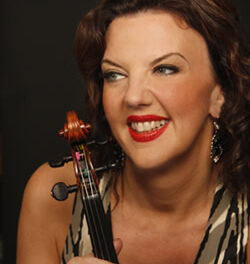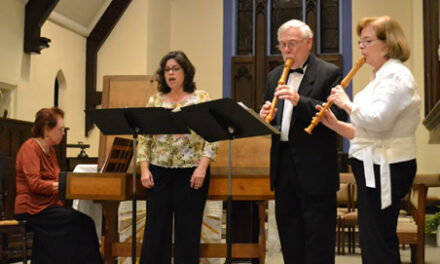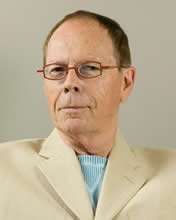On a balmy autumn night, friends, neighbors, musicians, and composers gathered at the Ark Dance Studio on Duke University’s East Campus to celebrate the life and music of Jennifer Fitzgerald (1975-2007). The intimate yet spacious setting, doubling on this occasion as a sanctuary, was set up with piano, marimba, vibraphone, drum kits, and a variety of recording equipment. Members of the Duke New Music Ensemble [dnme] and pulsoptional, performed; they were joined by mezzo-soprano Abigail Fischer (of New York); Sloan Hoffman, horn (Los Angeles); and John McDonald (Tufts University). The concert included seven of Fitzgerald’s works, tributes by Sidney Marquez Boquiren and John McDonald; and John Cage’s “Theatre Piece” (1960).
Fitzgerald was a founding member and co-director of the composers’ collective, pulsoptional. A student of John McDonald and Anthony Brandt at Tufts University, she later studied with Stephen Jaffe, Scott Lindroth, and Anthony Kelley at Duke University, where she was awarded a Ph.D. in composition and a women’s studies certificate. One of her works, “Having Once Been, Movement 1,” was performed by the American Composers Orchestra in New York City in May 2005, a prestigious moment for an emerging artist. The list of accomplishments, performances, and accolades, especially for a composer so young, are impressive, as were the artists who played on this special evening,
Fitzgerald’s oeuvre consists of large ensemble pieces with unusual groupings of instruments — orchestral and solo (and duo) works — and opera. Musical offerings for the concert were the first installment of a project to preserve her work. The opening, “pulsopoly” (2005), featured members of both [dnme] and pulsoptional; it had the feel of a well rehearsed improvisation. Calling for percussion, violins, electric and acoustic guitars, flute, banjo and vocals, players built soundscapes with the abandon of watercolorists yielding the wonderfully chaotic effect of animated cartoons. There were more high-energy ensemble pieces: “Boitoi” (2003), featuring pulsoptional and George Lam, piano; “How Terrible Orange” (2005), with pulsoptional and John McDonald, piano; and “A Thousand Machines” (2007), for violin, piano and clarinet.
Solo works also reflected the intense, even uplifting spirit of the evening. John McDonald’s performance of Fitzgerald’s riveting “Incidence” (2007) kept me on the edge of my seat. (Even Henry Cowell would have jumped when he whacked the piano strings with a 2×4!) And mezzo-soprano Abigail Fischer peeled the paint off the ceiling as she filled the house with incredible sound. Collaborating with pianist Kirill Zikanov, her performance of “Fingers 1” (2007) wasn’t just passionate, it was thrilling! Fitzgerald’s college roommate Sloan Hoffman displayed the stamina of an Olympian in her gutsy performance of a horn solo from Renga (2002).
There were also some personal send-offs, works created by her contemporaries, each characteristically unique. I was completely spell-bound by the extended vocalizations of Sidney Boquiren’s inventive and bitter-sweet “O-we-yówa” (2008). John McDonald’s piano work “Rester,” Op. 285, No.1 (1997-98), a suave Bill Evans-like solo, and “After Rester,” Op. 438, No. 3 (2008), were affectionate embraces. Finally, John Cage’s delightfully realized “Theatre Piece” was a fitting and jubilant closing. I pictured the sage anarchist greeting a radiant Jennifer Fitzgerald, both with beatific smiles.
Pulsoptional is Sidney Boquiren, composer, marc faris, composer/electric guitar, Todd Hershberger, composer/bassoon/alto sax, Thom Limbert, composer/percussion, Caroline Mallonée, composer/violin, John Mayrose, composer/guitar/bass, and Carrie Schull, oboe/English horn. The personnel of the Duke New Music Ensemble [dnme] are Peter Dong, flute, David Garner, banjo, Sarah Griffin, violin, Tim Hambourger, piano/voice, George Lam, violin/piano, Dan Ruccia, viola, Jonathan Wall, piano, and Kirill Zikanov, piano.













